About PIDSP
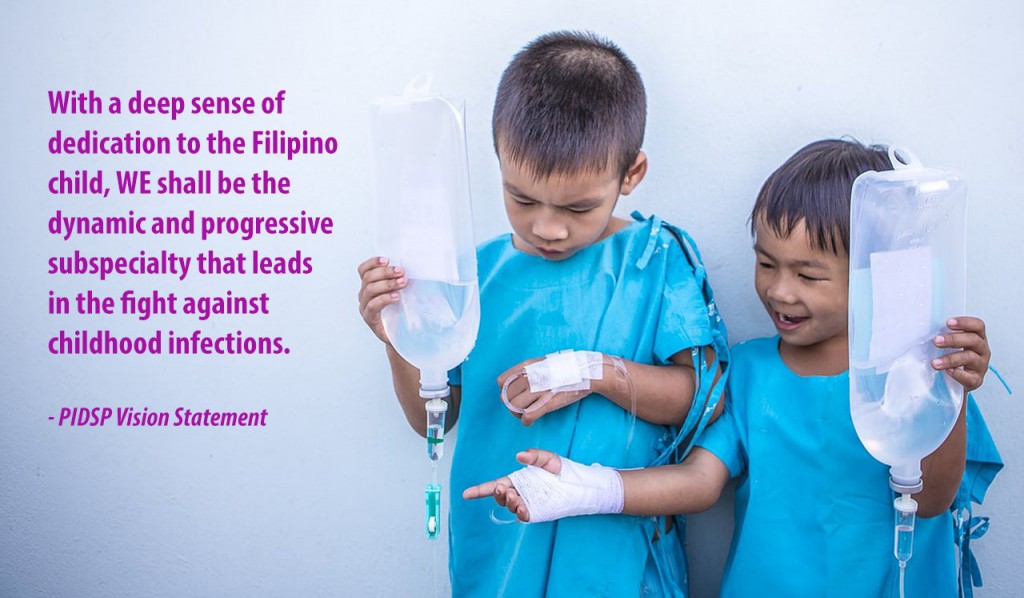

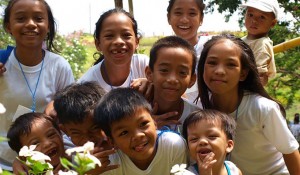 Driven forward by the ultimate goal of leading the fight against childhood infectious diseases, the Pediatric Infectious Disease Society (PIDSP), a subspecialty organization of the Philippine Pediatric Society (PPS) was founded in September 1993.
Driven forward by the ultimate goal of leading the fight against childhood infectious diseases, the Pediatric Infectious Disease Society (PIDSP), a subspecialty organization of the Philippine Pediatric Society (PPS) was founded in September 1993.
The brainchild of its founding president, Dr. Rosalinda B. Soriano, the group consisted of 16 board-certified pediatricians trained in the field of infectious diseases: Drs. Rosemarie Santana-Arciaga, Lulu C. Bravo, Enrique H. Carandang, Celia C. Carlos, Josefina Cadorna-Carlos, Antonio E. Chan, Rosalinda D. de Monteverde, Lester A. Deniega, Margaret Lu-Fong, Salvacion R. Gatchalian, Ma. Lourdes G. Gozali, May B. Montellano, Beatriz P. Quiambao, Jaime A. Santos and Estrella Paje-Villar.
The past 24 years have seen the Society achieve numerous milestones as it presses on with its mission to combat disease.
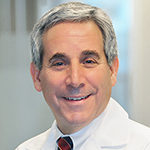
Dr. Sheldon Kaplan
The Society’s first Annual Convention was held in February 1994 at Shangri-La, Makati, graced by the presence of esteemed foreign speaker, Drs. Sheldon Kaplan and Chongsuphajaisiddhi Tan. Succeeding annual conventions were held every February.
The first issue of the PIDSP Journal was published in 1996 with Dr. Lulu Bravo as the editor in chief. In August of the same year, PIDSP, together with the Philippine Coalition against Tuberculosis (PHILCAT), hosted the PHILCAT convention with the theme “Childhood Tuberculosis: A Concern of All” at the Manila Midtown Hotel. The following year, the National Consensus on Childhood Tuberculosis, in collaboration with the Philippine Pediatric Society (PPS), was launched. After only four years, on September 23, 1997 the Society inaugrated a 3-storey condominium in Quezon City as its official home.
1998 was a truly eventful year, full of new beginnings for the Society. It witnessed the creation of the Asian Society of Pediatric Infectious Diseases (ASPID). Spearheaded by the PIDSP officers, this international collaboration included delegates from Indonesia, Malaysia, Sri-Lanka and Thailand as charter members. The Philippines was chosen to be its permanent Secretariat. Working with the nascent ASPID, PIDSP successfully hosted the 1st ASPID Symposium and the 5th PIDSP Annual Convention in Manila on February 18-19, 1998. In addition, the first PIDSP Postgraduate Module was held, focusing on Bacterial Infections and Antimicrobials. Subsequent modules were launched; these expanded on the previous curriculum with the addition of modules on Vaccines and Viral, Fungal and Parasitic Infections.
A pioneering force in the field, the Society oversaw the very first subspecialty board examination, which was given on September 1998; it was held annually, thereafter. The examination ensured the high quality of pediatric infectious disease specialists, an initiative central to the vision of PIDSP.
In November 1999, the Society, under the World Society for Pediatric Infectious Diseases (WSPID), successfully hosted the 2nd World Congress of Pediatric Infectious Diseases at the PICC. Ever at the forefront of education initiatives, the PIDSP Library formally opened its doors on the same year.
 PIDSP believed that the commitment against disease begins at birth. Seeing a significant lack of local guidelines for vaccination, the Society formulated a schedule for Childhood Immunization in the year 2000. It was presented during the 1st Philippine National Immunization Conference (PNIC) in November and was subsequently approved and adopted for widespread dissemination by the PPS. The recommendations are updated annually according to updated data.
PIDSP believed that the commitment against disease begins at birth. Seeing a significant lack of local guidelines for vaccination, the Society formulated a schedule for Childhood Immunization in the year 2000. It was presented during the 1st Philippine National Immunization Conference (PNIC) in November and was subsequently approved and adopted for widespread dissemination by the PPS. The recommendations are updated annually according to updated data.
In 2001, PIDSP was tasked by the DOH-PPS to convene a Technical Working group to formulate a Module on Immunization for children below 5 years old. On October 29, 2001, the draft for a National Child Advocacy Plan was launched in the Child Advocacy Summit before the PPS. PIDSP is a staunch advocate of the “Bawas Tigdas” program and provides continued support to maintain a “Polio-Free Philippines”.
At the height of SARS in 2003, PIDSP was tasked to create interim guidelines for its safe and effective management in the Philippine context. The project supported massive information-dissemination campaign launched through the PPS’ 40th Annual Convention. Amidst the crisis and testament to their hard work and contributions, three of the society’s past presidents, namely, Drs. Rosalinda B. Soriano, Lulu C. Bravo, and Josefina C. Carlos were elected as president, secretary-general and treasurer, respectively, of the Asian Society of Pediatric Infectious Diseases (ASPID). Never one to get left behind, PIDSP made its presence felt online as it launched its official website: http://pidsphil.org/.
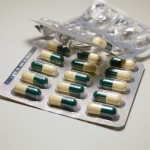 In February 2003, selected PIDSP members united with the Philippine Society for Microbiology and Infectious Diseases (PSMID) members to form the local chapter of the Alliance for Prudent Use of Antibiotics (APUA). In keeping with its tradition of leadership, APUA’s founding president, Dr. Celia C. Carlos, was also PIDSP vice-president at the time. Four months later, Philippine Academy of Pediatric Pulmonologists and PIDSP formed a working group to draft their recommendations on the management of pediatric community-acquired pneumonia. The Society’s education initiative moved ever forward as Cebu became the site of the PIDSP module focusing on Updates on Infectious Diseases in September.
In February 2003, selected PIDSP members united with the Philippine Society for Microbiology and Infectious Diseases (PSMID) members to form the local chapter of the Alliance for Prudent Use of Antibiotics (APUA). In keeping with its tradition of leadership, APUA’s founding president, Dr. Celia C. Carlos, was also PIDSP vice-president at the time. Four months later, Philippine Academy of Pediatric Pulmonologists and PIDSP formed a working group to draft their recommendations on the management of pediatric community-acquired pneumonia. The Society’s education initiative moved ever forward as Cebu became the site of the PIDSP module focusing on Updates on Infectious Diseases in September.
Charity is implicit in the vocation of healthcare, yet PIDSP pressed on to make helping others a prominent and vital part of its activites. In 2004, Papa John Center, Inc., a home for neglected/abandoned and orphaned street children aged 3 to 18 yrs, became the recipient of PIDSP’s outreach program. Centered on disease-prevention by way of vaccination, the program allowed PIDSP members to fulfill their mission while reaching out to the less fortunate.
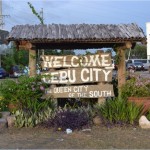 The Society took the 3rd Asian Congress of Pediatric Infectious Diseases and 13th PIDSP Annual Convention outside Metro Manila for the very first time in March 2006; These were held at The Waterfront Hotel in Lahug Cebu City.
The Society took the 3rd Asian Congress of Pediatric Infectious Diseases and 13th PIDSP Annual Convention outside Metro Manila for the very first time in March 2006; These were held at The Waterfront Hotel in Lahug Cebu City.
In May 2007, the “Anti-Rabies Act of 2007” was passed. One of the specifications of the law was the provision of pre-exposure prophylaxis to school children aged 5-14 years living in high incidence areas. In order to assist in the implementation of the law, PIDSP embarked on the Rabies Pre-exposure Program (PIDSP PreP) in collaboration with Sanofi Pasteur. The program kicked-off with a Training of Trainers workshop in September, coinciding with the celebration of the 14th PIDSP anniversary and National Medicine Week.
In a little over a decade, PIDSP has shown itself to have considerable voice and influence in the realm of pediatric infectious diseases. Its 15th Annual Convention, held at the Crowne Plaza Galleria Manila on February 6-7, 2008, was attended by nearly 1,300 participants. During the convention, the PIDSP granted its 16th Honorary Fellowship to Dr. Usa Thisyakorn. Previous honorary fellows included Dr. Fe del Mundo, Dr. Rolando Songco, Dr. Simona Alikpala, Dr. Rosario Carretero, Dr. Felix Estrada, Dr. Dan Granoff, Dr. Sheldon Kaplan, Dr. Lino Lim, Dr. Somsak Lolekha, Dr. Urbano Mendoza, Dr. Esperanza Rivera, Dr. Perla Santos-Ocampo, Dr. Chongsuphajaisiddhi Tan, Dr. Thelma Tupasi and Dr. Melecia Velmonte.
PIDSP celebrated its 16th anniversary with a testimonial to two of its pillars: Dr. Estrella Paje-Villar, who was chosen as the Most Outstanding Pediatrician of PPS; and Dr. Lulu C. Bravo, who was awarded Most Outstanding Physician by PSMID.
Under the leadership of the current president Dr May Book-Montellano, PIDSP convened its first PIDSP Scientific Forum last July 30, 2009 at the PPS Building. A case of Fungal Ventriculitis was presented by Dr. Mercy Uy-Aragon, an infectious disease fellow from PGH. The Scientific Forum is a bi-annual activity aimed at sharing ideas and experiences about interesting infectious diseases cases and is hosted alternately by UP-PGH, Research Institute for Tropical Medicine, San Lazaro Hospital and Philippine Children’s Medical Center.
Together with the PSMID, PIDSP sponsored the Joint PSMID-PIDSP Journalism Award for Infectious Diseases in November 2009. During the 31st PSMID convention, awards were given to Filipino journalists who have contributed to the dissemination of relevant and accurate information about infectious diseases through news stories or two- or three-part articles.
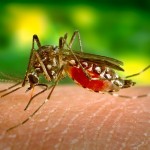 Recognizing the importance of dengue as a public health threat, PIDSP created an ad-hoc committee on Dengue headed by Dr. Mary Ann C. Bunyi. The committee, together with some members of the PIDSP board, attended the dengue training on Dec. 1, 2009 at the Grand Convention Center, Cebu City. The training was conducted by the PPS-Cebu Central and Eastern Visayas chapters and the Armed Forces Research Institute of Medical Sciences (AFRIMS). Dr Siripen Kalayanarooj, a World Health Organization (WHO) dengue consultant from the WHO collaborating center in Thailand, led the group as head trainer. The training program is currently being developed.
Recognizing the importance of dengue as a public health threat, PIDSP created an ad-hoc committee on Dengue headed by Dr. Mary Ann C. Bunyi. The committee, together with some members of the PIDSP board, attended the dengue training on Dec. 1, 2009 at the Grand Convention Center, Cebu City. The training was conducted by the PPS-Cebu Central and Eastern Visayas chapters and the Armed Forces Research Institute of Medical Sciences (AFRIMS). Dr Siripen Kalayanarooj, a World Health Organization (WHO) dengue consultant from the WHO collaborating center in Thailand, led the group as head trainer. The training program is currently being developed.
Before the year ended, PIDSP embarked on the renovation of the 13-year-old PIDSP office, with plans for its completion by Feb 2010.
From a handful of members, the society has now grown to 109 committed and energetic members: 16 honorary fellows, 16 life fellows, 23 fellows, 37 diplomates, 6 associate members and 11 affiliate members.
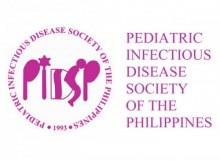
 To this day, PIDSP continues to actively pursue its mission of battling infectious disease among children. It is committed to set the highest standards for education, training, research and practice in the field of pediatric infectious diseases. The Society continually promotes and demands professional excellence, integrity and exemplary conduct as it forges on as a leader in pediatric health care.
To this day, PIDSP continues to actively pursue its mission of battling infectious disease among children. It is committed to set the highest standards for education, training, research and practice in the field of pediatric infectious diseases. The Society continually promotes and demands professional excellence, integrity and exemplary conduct as it forges on as a leader in pediatric health care.